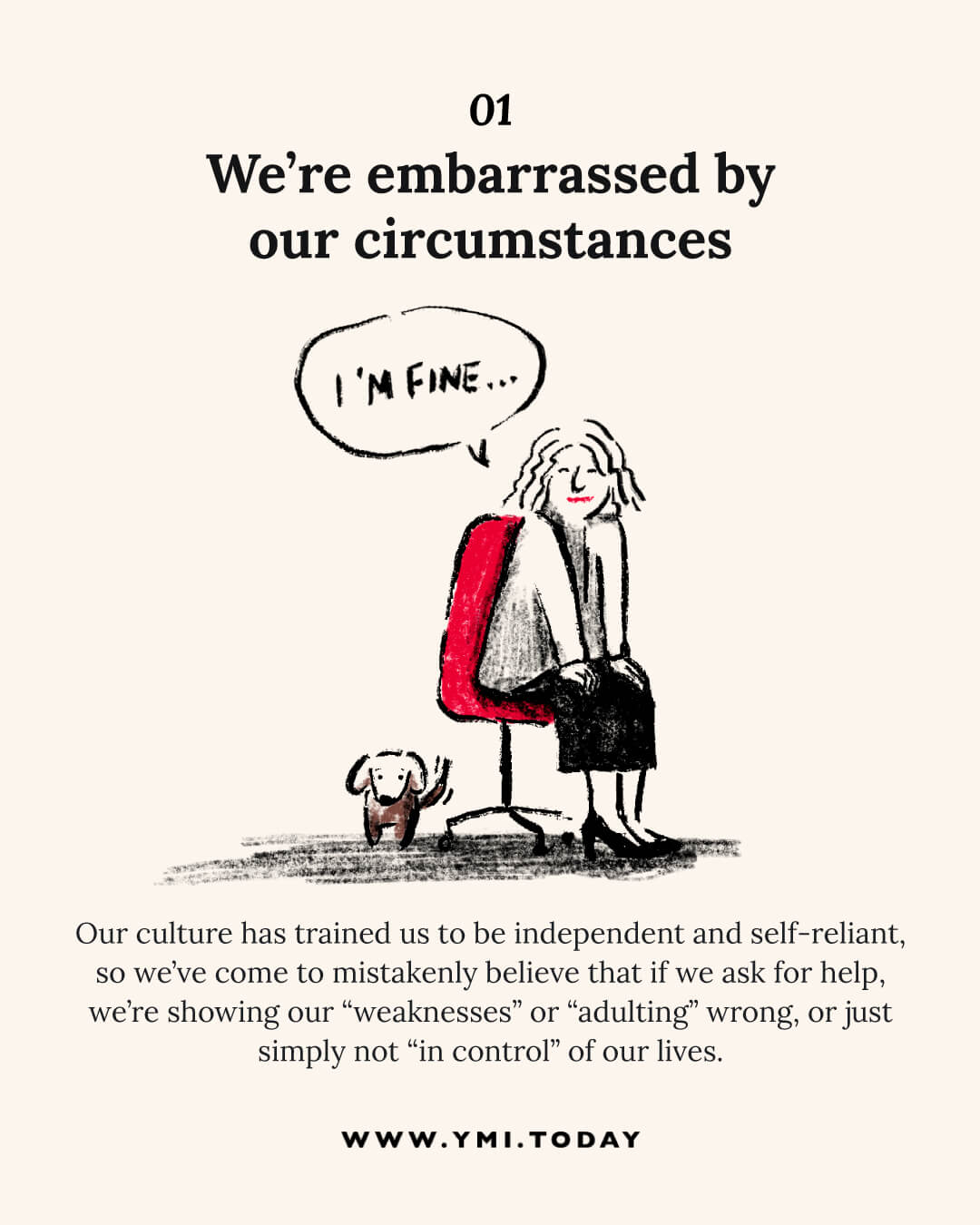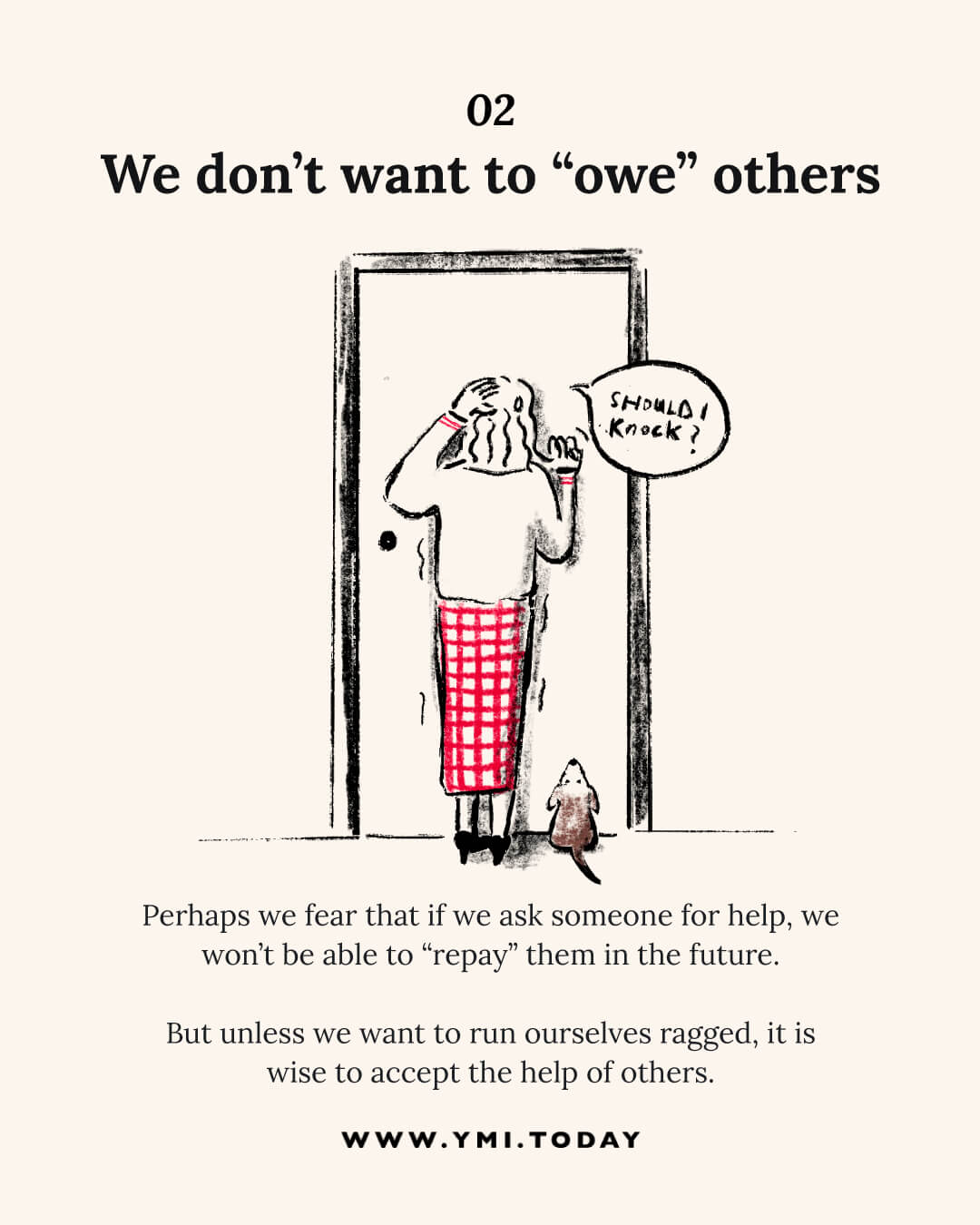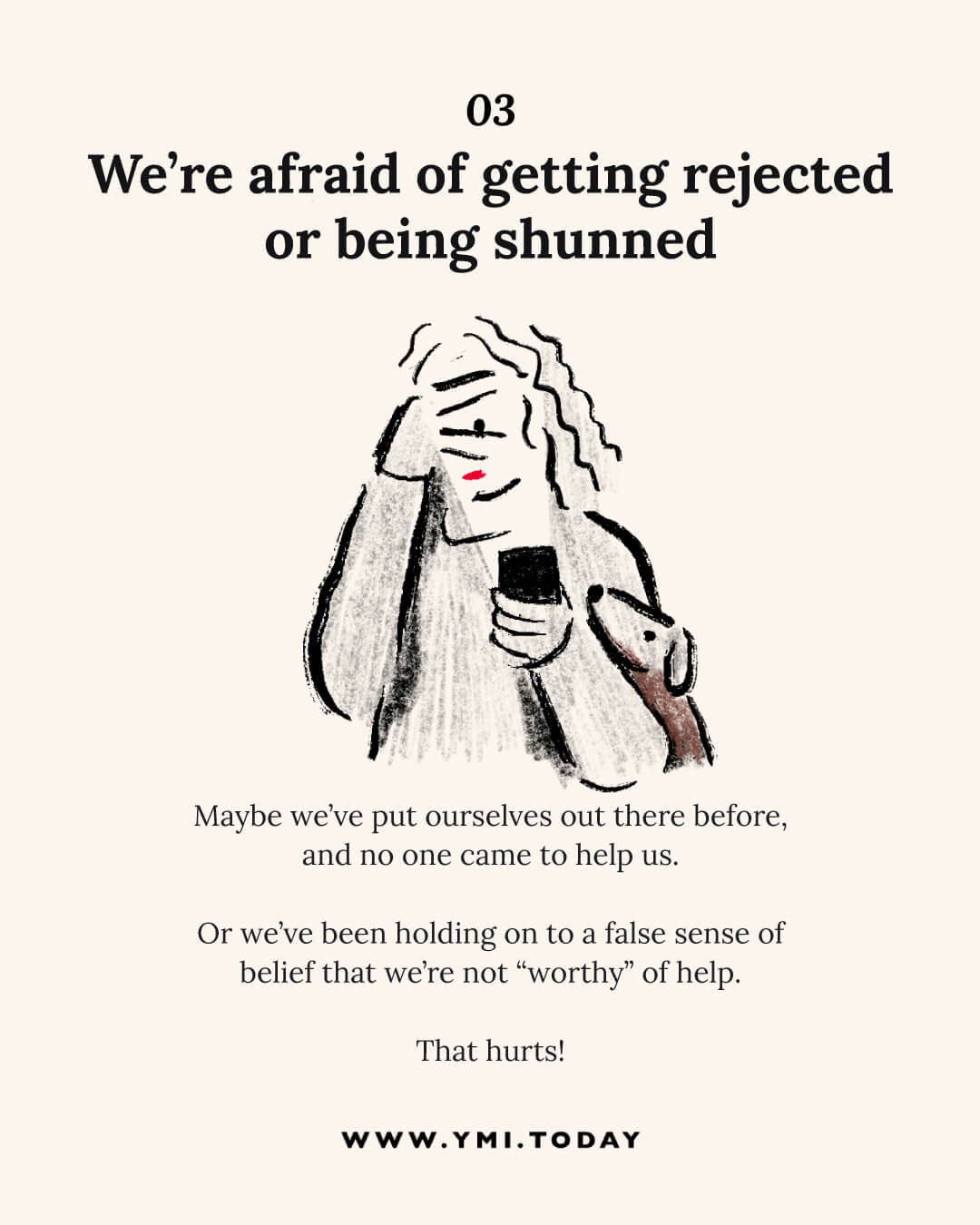3 Faulty Thoughts that Make it Hard to Ask for Help
Perhaps you’re a pro when it comes to helping others. You have helped numerous people on many occasions without expecting a return. Yet there have been times when you have needed help, but you can’t bring yourself to ask because you don’t want to impose on others.
Here are a few reasons we’re hesitant in asking for and accepting help:

1. We’re embarrassed by our circumstances
We could really do with some help, but we’re too embarrassed to ask. Our culture has trained us to be independent and self-reliant. So along the way, we’ve come to mistakenly believe that if we ask for help, we’re showing our “weaknesses” to others, we’re “adulting” wrong, or we’re not “in control” of our lives—and we cannot allow that to happen!
Learning to ask for help can be an exercise in humility (Romans 12:3). It’s okay to ask for help because we’re limited beings who can’t do everything on our own. It’s okay to be vulnerable with those around us. The people who come to our aid would most likely be those who, at some point in their lives, have walked the path we’re currently on, and are able to empathise with our circumstances.
Yes, God is our ever-present help in times of need (Psalm 46:1), and He supplies all our needs (Philippians 4:19), but He has also created us to be interdependent, so we can lean on each other. Besides, many hands make light work, and two are better than one (Ecclesiastes 4:9-12).
We can also challenge our thoughts by asking ourselves: “How do we know people will judge us?” or “How do we know we’d be a bother to someone?”
So, as awkward as it might be, reach the phone and call your church, small group, or your neighbour, and ask for help. You might be pleasantly surprised by their response.

2. We don’t want to “owe” others
When we ask someone for their help, it can feel like we now “owe” them something because there’s no such thing as a free lunch. What if we’re unable to help them out when the time comes (will that make us look like freeloaders?), or what if the person keeps asking for more favours?
However, unless we want to run ourselves ragged, we do need to accept the help of others.
Romans 13:8 (ESV) says: “Owe no one anything, except to love one another, for the one who loves another has fulfilled the law”. From this verse, we see that what we “owe” each other is the call to love, to give whatever we can, without expecting anything in return.
The act of receiving (and giving) also allows for the deepening of friendship ties. Our friends have sacrificed the free time they could have spent on themselves because they want to help us out. The time spent together, working on whatever it might be, can allow for friendships to grow and blossom.
And if we really do want to repay them, we can shout them a meal, or help them in other ways (it doesn’t always have to be the same kind of help we got), whether it’s with our knowledge or skills further down the line.

3. We’re afraid of getting rejected or being shunned
Perhaps we have put ourselves out there before. We were overwhelmed with work or life, so we made ourselves vulnerable and asked for help, whether from our parents, bosses, friends—only to be rejected by them. And it hurts!
Or, we’ve held a false sense of belief that no one will help us because we’re not “worth it”, or no one “loves us enough” to help us.
Over time, we’ve come to internalise that we will be rejected the moment we ask for help, so we may as well not ask at all (at least it keeps our ego intact).
This approach can turn into a self-fulfilling prophecy. We might end up sabotaging ourselves and missing out on the wonderful “yes”(es) we might have received had we just asked.
If we think about it from the other person’s perspective, it’s likely they declined to help for personal reasons (maybe they’re very busy, or they feel they aren’t the right person for it), and not that they’re rejecting us as a person.
Unlearning the fear of rejection isn’t an overnight process, but we can take small steps by first acknowledging that the rejections we received in the past have hurt us. But just because it happened back then doesn’t mean it will necessarily happen in the future.
Scripture says perfect love casts out all fear (1 John 4:18). We can go to God in prayer, asking Him to heal us of our fear of rejection, and know that He’ll bring kind, wonderful people into our lives who would say, “Yes, I can help you with that!”

Asking for and accepting help can be awkward if we aren’t used to it, but it’s never too late to give it a go! Put your hand up if you notice there’s a need you can help with. Or, after years and years of helping others, finally say “yes” to the help that’s offered to you.
Missed part 1 of the series? Read it here:











Leave a Reply
Want to join the discussion?Feel free to contribute!